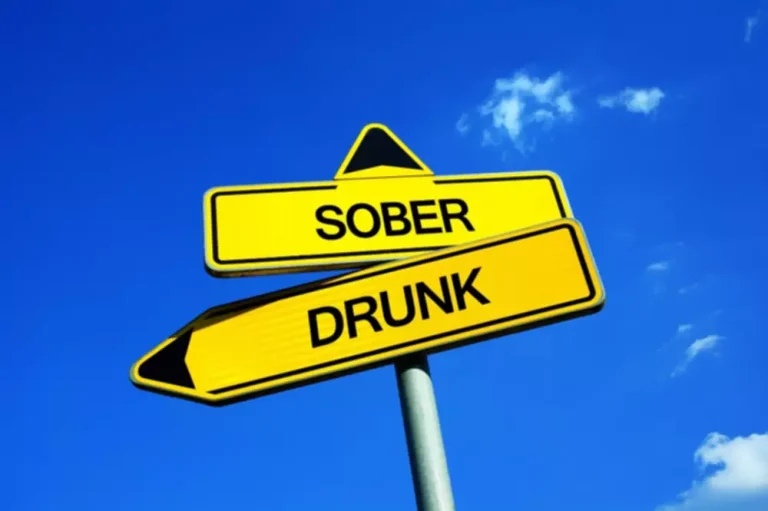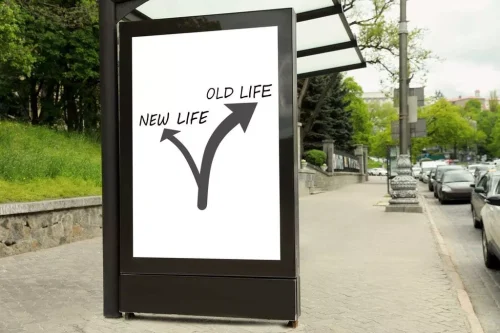
Unless you regain your ability to cope with stress, the chances of developing an anxiety disorder remain high. Conversely, the three types of studies highlighted in this section indicate that if an association between alcoholism and anxiety/depressive disorders does exist, it is likely to operate in a relatively small subgroup of alcoholics. Only one notable study of COA’s has demonstrated a higher-than-expected risk for these major psychiatric disorders. However, as pointed out by Kushner (1996), larger studies of COA’s who have passed the age of risk for most disorders will need to be conducted before final conclusions can be drawn. An alcohol-dependent person who demonstrates such psychological symptoms needs more intense intervention and support than may otherwise be provided, and if not appropriately treated, the symptoms may carry a worse prognosis for alcohol-related problems. High levels of depression are especially worthy of concern, because the risk of death by suicide among alcoholics, estimated to be 10 percent or higher, may be most acute during these depressed states.
What Does a Sense of Impending Doom Feel Like?
If shared genetic risk factors account for the longitudinal relationship, model A would fit best. If longitudinal associations result from causal effect between the disorders, model B would fit best. If the baseline (T1) associations fully explain the future (T2) associations, b32 and b41 would be estimated at zero.

Treatment options for alcohol use disorder
There also seems to be a correlation between the amount of alcohol I drink and how anxious I am—the more gin and tonics I have, the more anxious I’ll be when they wear off. Talk to your doctor about alcohol consumption before taking any of these medications, as side effects can be harmful or fatal. Alcohol-induced anxiety can last for several hours, or even for an entire day after drinking. If you believe you or someone you love has anxiety that gets worse with alcohol use, you or your loved one can take steps to treat their anxiety and cut down or stop drinking.
- Is it because you’re genuinely enjoying time with your friends or family, or are you trying to relieve taxing feelings you’ve been dealing with?
- Additionally, support groups provide valuable social support, and stress management techniques like time management and problem-solving strategies can further enhance coping abilities.
- Take medication exactly as directed by your doctor or mental health professional and do not obtain any medication on the black market.
- A 2022 longitudinal study highlights a bidirectional relationship between AUD and anxiety disorders.
- Plus, take note of how your mood is each day — if you’re feeling extra on edge already, try and go against the temptation of remedying that with alcohol.
Alcohol is not anxiety treatment
We first examined the associations between each anxiety disorder and AUD in logistic regression analyses adjusted for age, sex, and time, and then entered all anxiety disorders in the model simultaneously. We compared this to a model where AUD was regressed on the total load of anxiety disorders, rather than specific diagnoses, and tested whether any of the anxiety disorders predicted AUD over and above does alcohol cause anxiety attacks the total load of anxiety disorder. This total load was computed as an item response theory (IRT) factor score in a graded response model. In order to maximize power, we collapsed T1 and T2 in these analyses, so that each interview constituted an observation. The analyses were run as generalized estimating equations (GEE) to adjust for statistical dependence between siblings and repeated measures.
This is why you may find yourself wide awake in the middle of the night if you have had a lot to drink the night before. Alcohol’s boost in glutamate may contribute to anxiety well into the following day. Typically, he offers this in conjunction with supportive therapy, motivational interviewing, and/or cognitive behavioral therapy in 30-minute follow-up visits.
Schuckit and colleagues have studied the rates of psychiatric disorders in COA’s from a variety of perspectives. In this followup study, although the sons of alcoholics were three times more likely to develop alcohol abuse or dependence, they showed no higher rates of major depressive disorders or major anxiety disorders during the followup period. Indeed, several disorders are more likely to be observed in COA’s than in control groups, including conduct problems, such as difficulties with discipline at home or in school (Schuckit and Hesselbrock 1994). As cited in our recent review, however, an evaluation by Hill and colleagues1 of 95 COA’s and control subjects at ages 8 to 18 showed no evidence of increased rates for depressive or anxiety disorders in the offspring of alcoholics (Schuckit and Hesselbrock 1994).

Is Anxiety Associated with Alcohol Tolerance and Dependence?

Monozygotic (MZ) twins share all their genes whereas dizygotic (DZ) twins share on average half of the genes that vary in the population. This difference can be used to divide variation in traits and associations between traits into https://ecosoberhouse.com/ additive genetic (A), shared environmental (C), and individual-specific environmental (E) factors (Neale & Maes, 2004). This is a combination of the Cholesky decomposition and the correlated factors model (Torvik et al., 2017).
- Thus, long-term psychiatric treatment does not appear to be required for alcohol-induced psychiatric conditions to be resolved (Brown and Schuckit 1988; Schuckit and Hesselbrock 1994).
- This anxiety may be the result of the chemical withdrawal, but is also often related to people using anxiety as a way to self-medicate for stress.
- In this model, the genetic correlation between SAD and AUD was 0.65 (95% CI 0.58, 0.95) and the environmental correlation was 0.45 (95% CI 0.16, 0.51).
- Of course, alcohol withdrawal itself can also cause anxiety and panic attacks.
- As this is happening, it can affect your central nervous system and cause you to feel jittery or anxious.
Types of anxiety and symptoms
- It is very common for people who experience anxiety to self-medicate by consuming alcohol, which can offer a temporary fix.
- In fact, research suggests that around 25% of people with panic disorder also have an alcohol dependence.
- Some interesting implications arise if SAD, but not other anxiety disorders influence AUD.
Other symptoms, such as racing heart, breathing difficulties, and chest discomfort, can accompany these attacks of panic and fear. Regular use of alcohol to temper feelings of anxiety is a telling sign you could be developing an alcohol use disorder. Exposure to feared stimuli is a powerful and active treatment ingredient that is recommended across the spectrum of anxiety disorders. Although the specific cues differ, application of exposure for each disorder generally involves repeated presentation of feared stimuli until the patient has become used to them (i.e., habituation is reached), resulting in extinction of the fear response.
- The above-mentioned studies provide less evidence for a direct effect from AUD to SAD (Buckner & Turner, 2009; Dahne et al., 2014; Wolitzky-Taylor et al., 2012).
- Research has shown that the more anxiety, depression, and stress symptoms you have, the more severe your hangovers can be.
- Long-term alcohol use also often leads to tolerance, when a person needs to drink more to get the desired effect.
